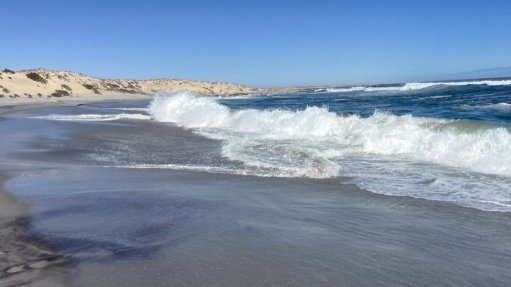Development finance may unlock Moz–Malawi interconnector
The European Union (EU) and the German Development Bank (KfW) are to extend a €20-million grant to Malawi to partially finance the $127-million Mozambique–Malawi electricity interconnector project.
Malawi is keen to fast-track the project so that it can start importing electricity from neighbouring Mozambique and other Southern African Power Pool (SAPP) member countries to address an electricity supply deficit that has reached crisis proportions.
The 218 km 400 kV interconnector will run from the Phombeya substation, in southern Malawi, to the Matambo substation, in Mozambique’s Tete province.
Electricity Supply Corporation of Malawi CEO Alexon Chiwaya says he expects more financiers to come on board for the project. He would like it to be operational from as early as 2020.
KfW Southern Africa director Thomas Duve says the bank will extend €30-million to Mozambique for its portion of the project.
EU head of delegation in Malawi Mirchal Gerrmann says it is important that Malawi, which has resorted to using diesel generators to overcome its electricity shortages, embraces long-term solutions to the crisis.
Malawi is currently not connected to the SAPP and cannot import power from other countries in the region.
“We need to sign the contract with both governments pretty soon to commence the project,” says Duve.
Because of the electricity crunch, Malawi has had to resort to load-shedding, sometimes for up to 24 hours at a time.
The electricity shortages are attributable to the drought-induced low levels of water in the Shire river, an outlet of Lake Malawi that hosts hydroelectric power plants, which produce about 98% of the country’s electricity.
Malawi has an installed generation capacity of 351 MW, compared with peak demand of 350 MW. Owing to the low water levels, it is able to generate only 200 MW.
Malawi started preparing for the interconnector project several years ago. In 2007, the World Bank approved $93-million in financing for the project, with Malawi’s share pegged at $45-million, while the balance was for construction on the Mozambique side.
However, Malawi’s Parliament refused to approve the loan, arguing that the project was too expensive for the country.
Consequently, in 2010, the World Bank cancelled the loan.
Article Enquiry
Email Article
Save Article
Feedback
To advertise email advertising@creamermedia.co.za or click here
Announcements
What's On
Subscribe to improve your user experience...
Option 1 (equivalent of R125 a month):
Receive a weekly copy of Creamer Media's Engineering News & Mining Weekly magazine
(print copy for those in South Africa and e-magazine for those outside of South Africa)
Receive daily email newsletters
Access to full search results
Access archive of magazine back copies
Access to Projects in Progress
Access to ONE Research Report of your choice in PDF format
Option 2 (equivalent of R375 a month):
All benefits from Option 1
PLUS
Access to Creamer Media's Research Channel Africa for ALL Research Reports, in PDF format, on various industrial and mining sectors
including Electricity; Water; Energy Transition; Hydrogen; Roads, Rail and Ports; Coal; Gold; Platinum; Battery Metals; etc.
Already a subscriber?
Forgotten your password?
Receive weekly copy of Creamer Media's Engineering News & Mining Weekly magazine (print copy for those in South Africa and e-magazine for those outside of South Africa)
➕
Recieve daily email newsletters
➕
Access to full search results
➕
Access archive of magazine back copies
➕
Access to Projects in Progress
➕
Access to ONE Research Report of your choice in PDF format
RESEARCH CHANNEL AFRICA
R4500 (equivalent of R375 a month)
SUBSCRIBEAll benefits from Option 1
➕
Access to Creamer Media's Research Channel Africa for ALL Research Reports on various industrial and mining sectors, in PDF format, including on:
Electricity
➕
Water
➕
Energy Transition
➕
Hydrogen
➕
Roads, Rail and Ports
➕
Coal
➕
Gold
➕
Platinum
➕
Battery Metals
➕
etc.
Receive all benefits from Option 1 or Option 2 delivered to numerous people at your company
➕
Multiple User names and Passwords for simultaneous log-ins
➕
Intranet integration access to all in your organisation

















